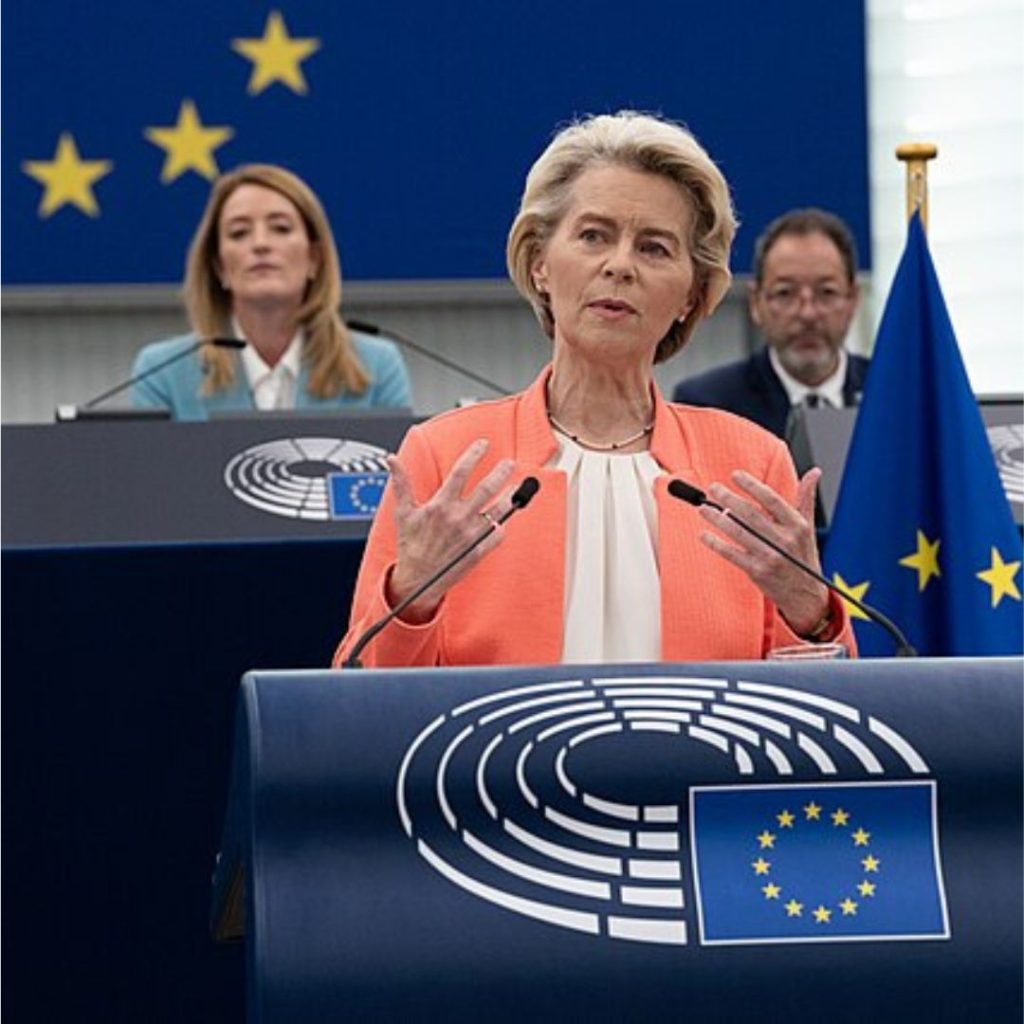Withdrawal of the pesticide proposal after protests - quo vadis?

EU Commission President Ursula von der Leyen announced yesterday in the European Parliament in Strasbourg that she would withdraw the so-called "SUR Regulation", which envisaged a pesticide reduction target of 50% by 2030. The decision follows the failed attempt at the end of last year to find a common position in the EU Parliament. In her speech yesterday, von der Leyen noted that the SUR proposal has become a symbol of polarization. SUR stands for Sustainable Use Regulation.
"It's about overcoming the polarization of the debate," said von der Leyen. In view of the EU-wide protests by many farmers in recent weeks, she explained that attractive economic incentives were needed for nature conservation measures. "Only if we work together to achieve our climate and environmental protection goals will farmers be able to maintain their livelihoods." The agricultural and food sector needs sustainable prospects.
Background
The European Commission had drafted a proposal for a new regulation on the sustainable use of plant protection products, which includes EU-wide targets for reducing the use and risks of chemical pesticides by 50% by 2030 and is in line with the EU Farm-to-Fork and Biodiversity strategies.
However, as we reported, this did not find a majority in the EU Parliament last November. Nevertheless, the EU agriculture ministers continued to work on the wording of the regulation under the Spanish EU Presidency. Even in January, after Belgium took over the EU Presidency, work continued on a compromise. They wanted to save at least parts of the regulation, particularly those relating to alternatives to chemical pesticides, namely biological pesticides. So far, however, without success.
Black day for health
Yesterday was described as a "black day for health and biodiversity" by the Pesticide Action Network, an NGO that campaigns to reduce the use of pesticides worldwide. This is not the first black day in recent months .... .
"The announcement by Commission President Ursula von der Leyen to withdraw the SUR pesticides law marks the end of a devastating opposition, led by the agrochemical industry, to a healthier, sustainable agriculture in the EU," the statement reads.
Other environmental organizations such as Global 2000 agree with this statement.
"However, this polarization is the result of a years-long disinformation campaign by the European People's Party, which fought against binding EU pesticide reduction targets with misleading and false claims, mostly without evidence. In spring 2023, more than 6,000 scientists refuted the arguments of conservative politicians in a thorough and detailed fact check," Global 2000 said in a press release.
According to Global 2000, the withdrawal of the SUR in the run-up to the EU elections sends a very negative signal to citizens: Many farmers in Europe are already demonstrating that ambitious pesticide reduction is possible, within the right framework that allows them to make the transition and rewards them for their work. The withdrawal of the SUR lets farmers down by further delaying this urgently needed transition to climate- and bee-friendly agriculture.
SUR proposal was absurd
In contrast, agricultural representatives are delighted with the latest developments. "It is high time that the EU Commission took the criticism from farmers, interest groups and scientists seriously and corrected its mistakes. The SUR proposal was absurd, impractical and chaotically designed and would have largely made sustainable agricultural production impossible. Instead, it would have merely increased CO2-intensive imports of foodstuffs whose production methods would have been banned here. This would not have helped anyone, not even the environment, climate and biodiversity - quite the opposite!" says Josef Moosbrugger, President of the Austrian Chamber of Agriculture (LKÖ).
Legal action against EU glyphosate re-authorization
Almost simultaneously, at the end of January 2024, a consortium of six NGOs - PAN Europe, GLOBAL 2000, ClientEarth (EU), Générations Futures (France), PAN Germany and PAN Netherlands - launched legal action to challenge the European Commission's recent decision to reauthorize glyphosate. Following an in-depth review of the glyphosate re-approval process and the identification of several critical shortcomings, the environmental organizations submitted a request for internal review to the EU Commission yesterday.
The European Commission, the European Food Safety Authority (EFSA) and the European Chemicals Agency (ECHA) have not fulfilled their obligation to protect European citizens and the environment, they have not complied with EU law and case law on the Pesticides Regulation and the precautionary principle.
The European Commission has re-authorized glyphosate for 10 years, despite a wealth of scientific evidence of its toxicity to human health and the environment. The European Commission now has 22 weeks, i.e. until the end of June, to formally respond to the application. If the Commission does not revoke the approval of glyphosate, the NGOs will take the matter to court.
Our pro.earth.conclusion:
It remains exciting at all levels. We can observe a fierce struggle for our future, where conservative forces are fighting against restrictions and urgently needed measures by a wide variety of means, because for some it will mean a loss of income. On the other hand, forces that see the necessity and urgency are struggling to implement uncomfortable regulations that will change many aspects of our lives. This negotiation, the struggle for a compromise, in the very best case for a consensus, is a deeply democratic process. We would very much like everyone to be aware of this urgency.






